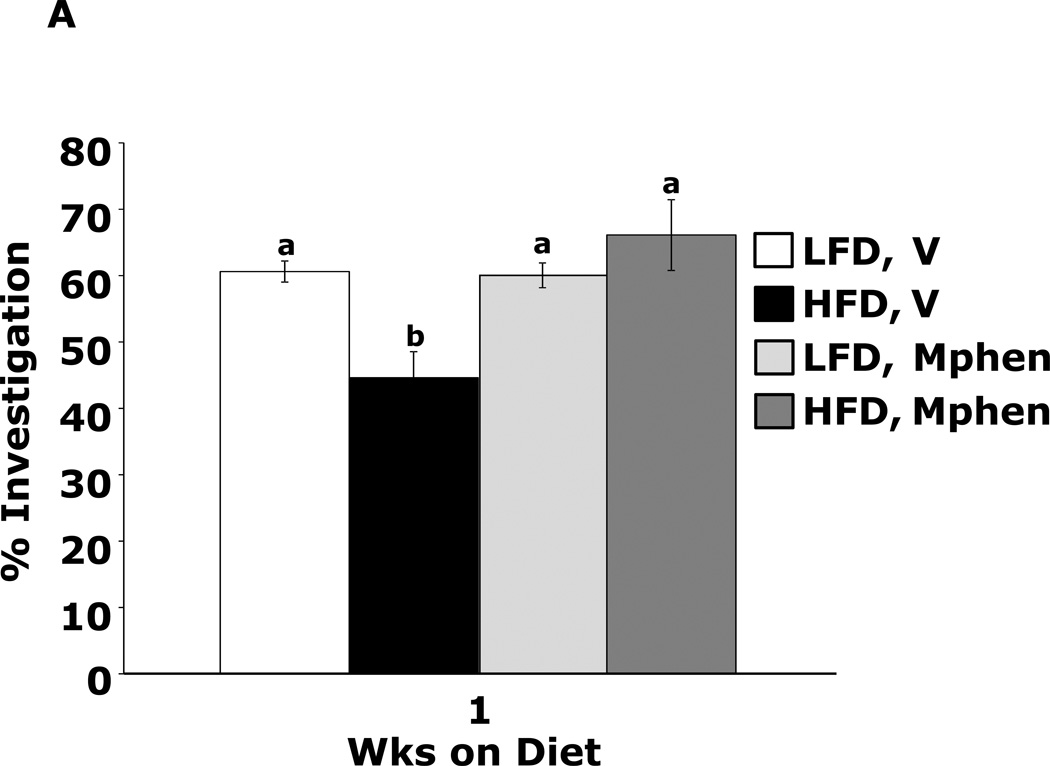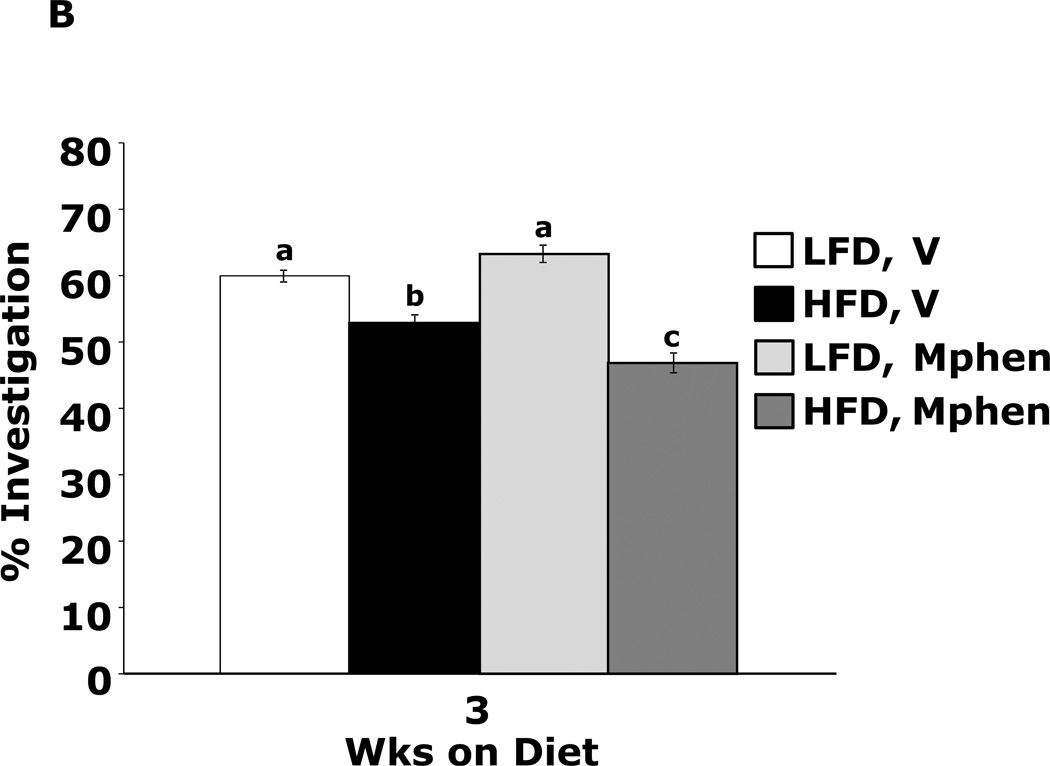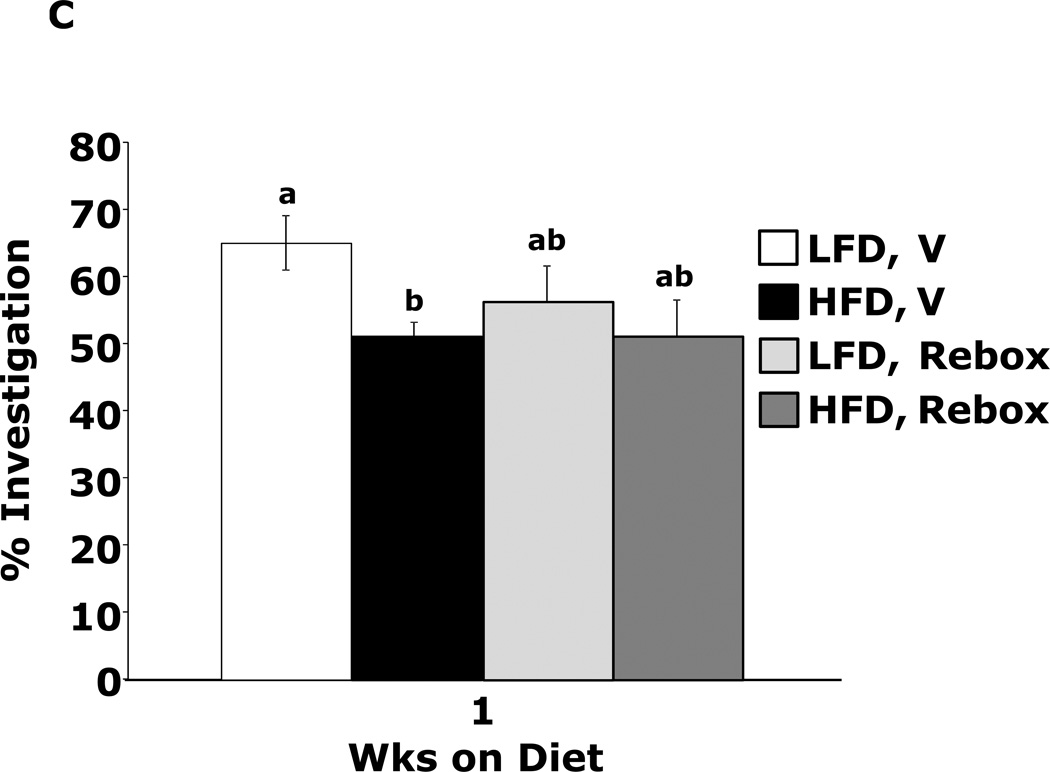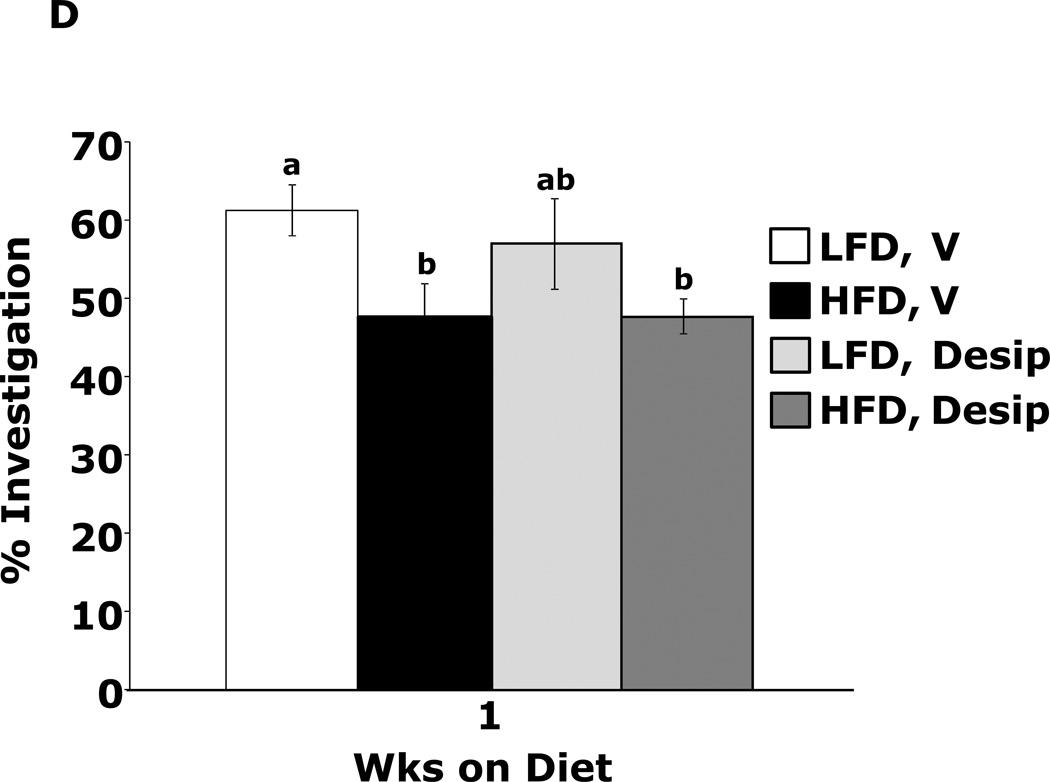Figure.4. Methylphenidate corrects 1 wk HFD-dependent memory impairment.
(A) Wild type mice were fed a LFD or HFD for 1 wk. Mice were treated with vehicle (V) or methylphenidate (Mphen). Exploration of a familiar and novel object were measured for 5 min. Results are expressed as % investigation of the novel object compared to the familiar object, means ± SEM; n = 8. Bars without a common superscript are different (P < 0.05). (B) Wild type mice were fed a LFD or HFD for 3 wks. Mice were treated with vehicle (V) or methylphenidate (Mphen). Exploration of a familiar and novel object were measured for 5 min. Results are expressed as % investigation of the novel object compared to the familiar object, means ± SEM; n = 8. Bars without a common superscript are different (P < 0.05). (C) Wild type mice were fed a LFD or HFD for 1 wk. Mice were treated with vehicle (V) or reboxetine (rebox). Exploration of a familiar and novel object were measured for 5 min. Results are expressed as % investigation of the novel object compared to the familiar object, means ± SEM; n = 8. Bars without a common superscript are different (P < 0.05). (D) Wild type mice were fed a LFD or HFD for 1 wk. Mice were treated with vehicle (V) or desipramine (desip). Exploration of a familiar and novel object were measured for 5 min. Results are expressed as % investigation of the novel object compared to the familiar object, means ± SEM; n = 8. Bars without a common superscript are different (P < 0.05).




